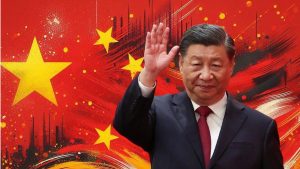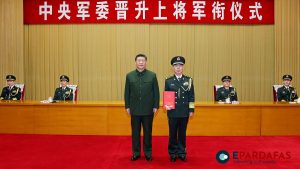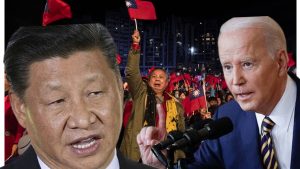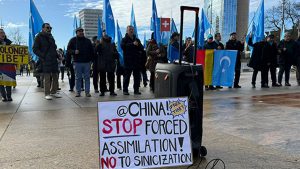
U.S. Unveils Firm Stance on China: National Security Interests to Drive Policy Decisions

In a significant policy shift, the United States has asserted its commitment to utilize national security interests as a guiding principle in shaping its approach towards Communist China. The announcement came from the State Department during a news briefing with spokesperson Matthew Miller on December 13.
Miller emphasized that the U.S. is prepared to impose investment restrictions and sanctions on China when deemed necessary for national security. He reiterated the administration’s resolve, stating, “We will continue to take those actions when it is in our national security interest to do so.”
The remarks were prompted by a bipartisan proposal from the House Select Committee on the Chinese Communist Party, advocating for a recalibration of relations with China. The proposal places national security and U.S. values at the forefront of decision-making.
The committee’s recommendations include a spectrum of measures such as raising tariffs on China-made goods, limiting outbound investment to China, addressing national security concerns related to social media platforms like TikTok, and mitigating the impact of China’s economic retaliation on American workers.
While the State Department did not delve into specific proposals, Miller highlighted previous actions taken by the administration, including restrictions on capital outflows and targeted sanctions and export controls focusing on specific sectors of the Chinese economy.
However, the administration maintains an interest in fostering collaboration with China on mutual concerns and global issues. Miller emphasized the need to balance actions that serve U.S. national security interests with diplomatic efforts, stating, “But at the same time, we want the ability to work with China…”
The Biden administration has outlined its China strategy as one encompassing cooperation, competition, and confrontation. High-ranking officials, including Secretary of State Antony Blinken and Secretary of Treasury Janet Yellen, have engaged with their Chinese counterparts to ease bilateral tensions. President Joe Biden and Chinese leader Xi Jinping recently held an in-person meeting, addressing key issues such as military communications, the opioid crisis, and Taiwan.
In contrast, lawmakers advocating for a recalibration of economic ties with China express skepticism about the efficacy of engaging with the communist regime. Committee chair Rep. Mike Gallagher emphasized the need for a strategy acknowledging the inadequacy of the status quo, stating, “It’s a strategy that, of course, involves tradeoffs but I think a strategy [that] builds on the recognition, if nothing else, that the status quo is not working.”












Comments